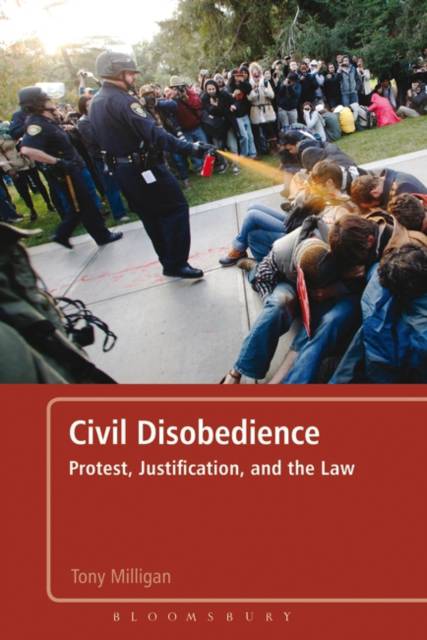
Bedankt voor het vertrouwen het afgelopen jaar! Om jou te bedanken bieden we GRATIS verzending (in België) aan op alles gedurende de hele maand januari.
- Afhalen na 1 uur in een winkel met voorraad
- In januari gratis thuislevering in België
- Ruim aanbod met 7 miljoen producten
Bedankt voor het vertrouwen het afgelopen jaar! Om jou te bedanken bieden we GRATIS verzending (in België) aan op alles gedurende de hele maand januari.
- Afhalen na 1 uur in een winkel met voorraad
- In januari gratis thuislevering in België
- Ruim aanbod met 7 miljoen producten
Zoeken
€ 81,45
+ 162 punten
Uitvoering
Omschrijving
Civil disobedience is a form of protest with a special standing with regards to the law that sets it apart from political violence. Such principled law-breaking has been witnessed in recent years over climate change, economic strife, and the treatment of animals.
Civil disobedience is examined here in the context of contemporary political activism, in the light of classic accounts by Thoreau, Tolstoy, and Gandhi to call for a broader attitude towards what civil disobedience involves. The question of violence is discussed, arguing that civil disobedience need only be aspirationally non-violent and that although some protests do not clearly constitute law-breaking they may render people liable to arrest. For example, while there may not be violence against persons, there may be property damage, as seen in raids upon animal laboratories. Such forms of militancy raise ethical and legal questions.
Arguing for a less restrictive theory of civil disobedience, the bookwill be a valuable resource for anyone studying social movements and issues of political philosophy, social justice, and global ethics.
Civil disobedience is examined here in the context of contemporary political activism, in the light of classic accounts by Thoreau, Tolstoy, and Gandhi to call for a broader attitude towards what civil disobedience involves. The question of violence is discussed, arguing that civil disobedience need only be aspirationally non-violent and that although some protests do not clearly constitute law-breaking they may render people liable to arrest. For example, while there may not be violence against persons, there may be property damage, as seen in raids upon animal laboratories. Such forms of militancy raise ethical and legal questions.
Arguing for a less restrictive theory of civil disobedience, the bookwill be a valuable resource for anyone studying social movements and issues of political philosophy, social justice, and global ethics.
Specificaties
Betrokkenen
- Auteur(s):
- Uitgeverij:
Inhoud
- Aantal bladzijden:
- 176
- Taal:
- Engels
Eigenschappen
- Productcode (EAN):
- 9781441132093
- Verschijningsdatum:
- 28/02/2013
- Uitvoering:
- Paperback
- Formaat:
- Trade paperback (VS)
- Afmetingen:
- 150 mm x 226 mm
- Gewicht:
- 294 g

Alleen bij Standaard Boekhandel
+ 162 punten op je klantenkaart van Standaard Boekhandel
Beoordelingen
We publiceren alleen reviews die voldoen aan de voorwaarden voor reviews. Bekijk onze voorwaarden voor reviews.









